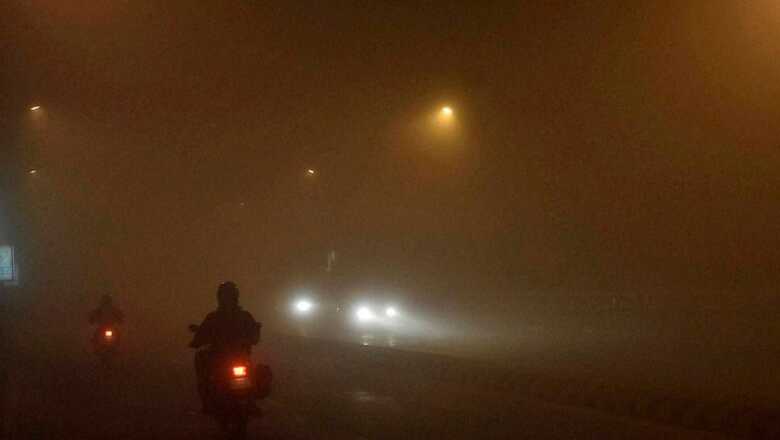
210
views
views
During foggy conditions, it is always necessary to maintain an optimum amount of space between the car in front
As North India grapples with cold, several parts of the country is witnessing foggy weather which has led to disruptions in flights and trains. The weather office issued a red alert over “very dense fog” in New Delhi as cold wave conditions continue.
Amid foggy conditions, several collisions were reported on roads. In Unnao district of Uttar Pradesh, multiple vehicles collided on the Agra-Lucknow expressway due to dense fog injuring several people.
Driving in fog can be tricky and dangerous due to low visibility. Here are some tips and suggestions that will help you navigate through foggy roads and reduce the risk of any mishaps:
- Watch your speed: Checking the speed of your vehicle is a must during foggy weather as you may be going faster than you think. It is wiser to reduce the speed gradually and avoid overtaking, changing lanes and crossing traffic. It is better to slow down and allow extra time to reach your destination.
- Ensure visibility: It is advisable to use the low-beam headlights. High beams reflect off the moisture droplets in the fog, making it harder to see. In case of fog, always use your tail-lights and blinkers so that other drivers can spot your car and maintain safe distance.
- Use fog lights: Though most mid and low segment cars in India don’t have fog lights, it is advisable to use if your car has one. You can also use yellow cellophane paper to stick it to your car’s headlights and turn the high beam on. Make your vehicle visible to both ahead of you and behind you by using your low-beam headlights.
- Don’t Use High-beam Lights: Never use your high-beam lights as they cause glare, making it more difficult for you to see what’s ahead of you on the road.
- Reduce any distractions: It is advisable to turn off your cell phone, radio and music to avoid any distractions. You can also roll down your window a little to help you hear other traffic on the road.
- Stay in Lane: It is better to drive closer to the kerb and follow the magnetic blinkers on the side of the road. To ensure you are staying in the proper lane, follow the lines on the road with your eyes. While driving on a single lane road, try to drive on the left side to avoid collisions.
- Maintain Distance: It is always necessary to maintain an optimum amount of space between the car in front. The longer the distance between the cars, the longer time the driver gets to react if there is any accident or requires immediate braking.
- Turn on your heater: It is advisable to turn on the heater as the fog outside will often led to window Condensation inside and poor visibility. Also ensure that the windscreen and windows are clean and that your light indicators are working.
- Use Horn if Necessary: Blow the horn repeatedly, especially while changing lanes and at turns.
- Don’t travel unless necessary: It is advisable to pull over to the side of the road if there is no visibility. In case of no visibility, turn on the emergency flashers, in addition to keeping your low-beam headlights on.
- Ensure Safe Parking: If there is no parking lot to pull into, pull your vehicle off to the side of the road as far as possible. Once you stop the vehicle, turn off all lights except your hazard flashing lights, set the emergency brake and ensure that the tail lights are on so that other drivers don’t mistakenly run into you.
- Plan Your Route: If possible, choose familiar routes where you know the road conditions better. Avoid any shortcuts or unfamiliar roads in dense fog.




















Comments
0 comment